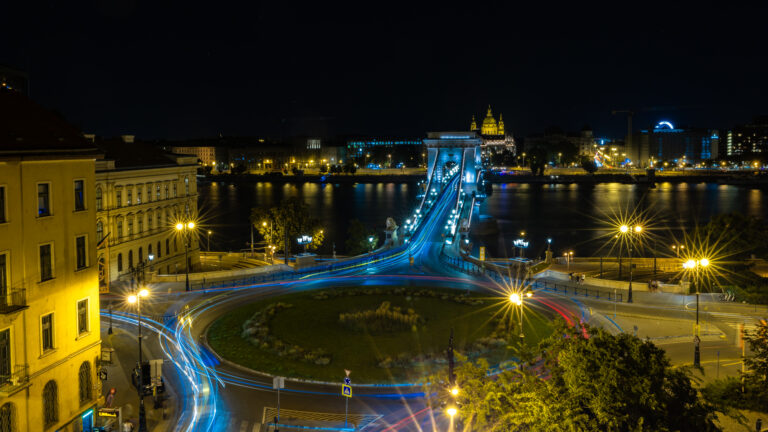This article was published in Vol. 3 No. 3 of our print edition.
A Microcosm of Democracy
Biatorbágy is a quiet town located in the Zsámbék Basin, just twenty minutes’ drive from Budapest. For me, its name brings back many cherished memories; this is the place I was born, and where I spent my early childhood. Having moved elsewhere, I would always recall Biatorbágy as my deepest, most gentle idea of ‘home’. To this day, it confers real belonging, a meaning so plastically contoured by its bucolic landscape or its well-preserved Swabian heritage.
Lately I have been going back to visit, and whenever I can, sit down to enjoy a cup of coffee, and also a local pastry. The little shopping street starts from the main square, and brings together people from all corners of the surrounding region: families, neighbours, colleagues, acquaintances. It is here, in this very microcosm of democracy, that I usually think about the essence of democratic politics and how it is sustained. Democracy is a community practising its own autonomos. It is sustained through the little interactions that we have in our daily lives—small, but intimate, and fundamentally deriving from our shared contexts of life; from the web of mutual loyalties that we develop towards one another. This is the insight republican Athens and Florence gave, and this is also what at least one Frenchman observed, adventuring beyond the ocean.1 The spontaneous energies of citizens to associate are at the heart of self-government.
Of course, history has complicated things, and democracies nowadays must extend beyond the agora and the walls of the polis if they are to endure. Our engine to reconcile democracy with distance and populations of scale was discovered in a not-so-old achievement, the modern nation state. As disruptive as they were when they emerged, political centralization, communication technologies, and an emerging national language, all enabled us to transform our experience of the particular into an idea of the national. Thereby they provided societies with the fabric of trust and interaction so vital for a functioning democracy.
The magic trick is manifest here. Nation states are not communities par excellence. But they can act as if they were. As opposed to empires or anything else, nation states can mimic communities. They can, on a psychological level, carry out a unification of Gesellschaft with Gemeinschaft,2 thereby paving the way for healthy democratic governance. This, importantly, also lends them much of their philosophical appeal. Indeed, our understanding of democracy is fundamentally intertwined with the nation state. It is the nation state, and nothing above, that sustains democracy. It is the nation state, and nothing beyond, that provides individual citizens with a sense of responsibility, duty, and belonging. To paraphrase the late Sir Roger Scruton, the nation state is the largest possible application of we, or the first-person plural.3
The Globalization Trap
On the one hand, therefore, we see a just and legitimate emphasis on a national setting in democratic theory. On the other hand, however, we may also witness the dramatic speed at which this basic scenery, the post-war synthesis, is worn away by the big transformations of our time. Everything that is contemporary testifies to one fundamental weakness: the weakness of democratic national governance against the dynamics of a digital globalization. The erosion is most evident not in the economic or even in the political realms, not in the robust inequalities of a Big Data society, or in the breakdown of public control over information, or the decreasing transparency of electoral processes. It is captured most clearly and profoundly at the most fundamental, psychological level. The very realm that, as witnessed from a little Biatorbágy coffeehouse, is at the heart of democratic governance.
The psychological problem of globalization comes down to one of its basic contradictions. While the technological and economic processes of globalization (with an emphasis on technology) advance at a robust speed, its cultural, political, and moral dimensions certainly lag behind. In other words, we witness the expansion of a vacuum of anxiety between these two processes of globalization. What this means in practice is that in lieu of the nation state, once strong and firm, two conflicting psychological realities are being created: one by the globe, and one by the nation. This involves a heavy antagonism in the hearts and minds of citizens—a conflict tearing apart the social fabric itself. And it is going to continue doing so unless the psychological vacuum between the nation and the globe is inhibited, and a new cultural consensus is established.
On the surface, let us add, this process of wearing away is mirrored by the soulless activity we usually call ‘identity politics’. Milieus defined by globalization, digitalization, and consumerism gradually cultivate the contemporary movement of cultural egalitarianism: restless, uncompromising, and undoubtedly totalitarian. In turn, areas left behind by today’s or yesterday’s modernity nurture the populist tendency to claim a monopoly over whatever remains of the nation, allegedly glorious and eternal. Indeed, through a dialectic of resistance, these areas provide a firm footing for the desperate, eternalist mysticism that surrounds nationhood in today’s nationalist discourse.4 In the unholy duel between these two, the harmonious system of the nation state—a once functioning public realm of civic trust and participation—slowly degenerates. Consider for a moment what the ‘nation’ has become. The various things we generally believe to be its psychological composites—a common (or at least fairly similar) memory, culture, and language—are nowadays, without doubt, all part of the terrain of a soulless battle.
‘The dissonances of globalization nurture opposing identity camps, thereby demolishing a once great unity: that of the nation state and democratic culture’
However, it is not only the content of democratic discourse that changes. Its existing structural conditions also fade away. Many democratic nation states no longer have a common public space; they no longer have citizens, nor an elaborate language fit for the conduct of civilized politics. Instead, people are almost inescapably trapped in the virtual, microtargeted realities of the digital world; civic behaviour is replaced by catatonic consumerism, and language—our intersubjective field of social knowledge and trust—is being replaced by a brutish, TikTok-like system of signs and slogans. Language is becoming more or less a digital wasteland.
In a word, the dissonances of globalization nurture opposing identity camps, thereby demolishing a once great unity: that of the nation state and democratic culture. All this creates a strange puzzle, one I believe to be absolutely foundational for politics in the coming decades. If contemporary democracies are based on the nation state, yet are clearly worn away from within by the processes of digital globalization, what future should we predict for democracy? Shall democracy necessarily continue its decay and, ultimately, ‘perish from the earth’?5 Or, is there a room for agency? Can democracies escape the globalization trap?
The Europe Trap
Evidently, one course of action we can imagine would be to pull down globalization itself. For example, Dani Rodrick argues in The Globalisation Paradox, that we can choose to abandon the tenets of the neoliberal era, recover something approximating the Bretton Woods system,6 and generate good
globalization, not more.7 Rodrick’s arguments certainly sound convincing. However, they do not address in sufficient depth the development whereby digital technology has overtaken finance and trade as the quintessential engine of globalization.
It no longer appears as true that the economic policies of nation states constitute the driving force behind globalization. That may have been the case during the era of Western imperialism or the Bretton Woods system. By now, however, economic policies have to a great extent been replaced by digital objects. These digital objects link together billions through virtual realities framed by data power and the perfect synchronization of the user and consumer experiences. The problem here is that we cannot realistically expect a pullback on the rate of technological progress by nation states. History shows that whenever states have tried to resist paradigmatic shifts in technological evolution they have ended up weaker,8 and their enemies stronger. This is all the more evident given the vast interplay of digital progress and strategic power we observe today. The West may enact laws to defend citizens from digitalization; China will not. State structures in the West would get weaker, while China would only get stronger.
As such, we can only assume that states will not halt, only harness, progress. This is precisely what we saw in America in the aftermath of the September 11 terrorist attacks, when the Bush administration decided to carry out a comprehensive project to reclaim state control over the digital world, allegedly to protect Americans from future instances of terrorism. Instead, what this intensive process of legislation—symbolized, among other things, by the Patriot Act of 2001—ultimately amounted to was an emerging Digital Leviathan, the WikiLeaks scandal, and declining public trust in elected officials and intelligence services. Not to speak of a quickening of the gradual breakdown of democratic conversation amid a solidifying Big Data economy, a process further catalysing the overall decay of national democracy. Digital power is fought over by the state and the market; citizens are viewed as hardly more than digital serfs.
If technological progress, and the blatant consumerism attending with it, are to be resisted, or at any rate reasonably integrated into society, they must, for better or worse, be regulated ‘from above’. Unlike individual nation states, transnational organizations may have the regulatory and economic power necessary to devise new frameworks for a globalization run amok and to potentially withstand its corrosive tendencies. This is more or less what the European Union tries to do. However, the problem with this—again—is that one menace to democracy replaces another.
When it comes to the ills of contemporary democracy, the EU is oil on the fire. Despite some benign and fruitful efforts, the EU in its current shape only exacerbates the psychological and cultural tension between the nation and the globe, a tension ultimately destructive of our democracies. This escalation is, again, of a psychological nature. As a depoliticized, bureaucratic vacuum, managed through transnational management and not through civic participation, the EU rightly assumes an imperialistic character in the collective mind of European peoples, further damaging our democratic culture and values.
The question is, however, not whether we should discard the very idea of European integration altogether, political as well as economic. As seen above, the political and legal restructuring of democratic governance represents the only realistic way to adapt to the otherwise corrosive powers of contemporary globalization. Further, it is hard to negate the idea that the historical, cultural, and broader ideational relations running across Europe are transforming it into a fertile soil for at least some kind of political integration. That is to say, even amid the democratic decay induced by globalization, there is room for some optimism. For Europeans, it does seem possible to slowly bridge the psychological chasm between the nation and the globe. Right now, however, the space for initiative is controlled by a ‘pseudoconfederal technocracy’9 whose structures and ‘values’ will never allow a real European identity to emerge and assume shape.
It is as though we were confronted with a double trap, a psychological trap set by globalization: the erosion of the fabric of trust and identity provided by nationhood, without allowing any space for new, meaningful frameworks to emerge. However, within this trap, Europe has engineered its own. As seen, Europe certainly does try to blunt the corrosive effects of globalization. Yet, so long as it does not undergo serious cultural and institutional reform, its efforts will prove ultimately meaningless. As a bureaucratic and managerial organization, the EU cannot but escalate the crisis of our democratic culture. It has completely monopolized the space in which democracy could be renewed or remade to stand the test of time. Therefore, if European democracies are to be saved, it is principally Europe, and not any of its national composites, that has to be saved; that is to say, saved from itself.
That way, however, both traps may be avoided, and perhaps even more may be achieved. If European integration can be reconfigured in a way that opens up a space for the gradual, democratic evolution of a European identity, thereby filling in the ever-expanding vacuum between the nation and the globe, not only will it prevent its own approaching collapse, but it may also renew its historical role as a global superpower. Such a future, however, requires conscious and serious decisions that transform the current ‘European project’ in both its spirit and general functioning.
The Euroconservative Approach
What path should the future of Europe take? To answer this question, first we must think about hitherto developed understandings of how democratic political communities are created. In a spirit echoing Edmund Burke’s criticism of the French Revolution,10 contemporary nationalists and national conservatives tend to claim that the institutions of democracy are products of particular normative traditions, deep rooted and unplanned. Values and norms, they point out, represent the organic realm which sustains institutions and provides them with ‘content’. It is these often unwritten codes from which civic virtue springs, to the benefit of the institutions which it enhances, and it is these codes that, at the end of the day, keep a flourishing democracy in motion. Values give birth to institutions.
In contrast, progressives, neocons, and liberal internationalists promote the opposing logic. For them, it is fundamentally institutions that give birth to values. This must have at least something to do with the Enlightenment ethic and the uncompromising belief in the intrinsic perfectibility of man. To say, with Rousseau, that man is virtuous in nature, that ‘man is born free, and everywhere he is in chains’11 is to say that if institutions are designed according to man’s natural rights, man can be free again. Humankind can be liberated through the right institutions. Crudely put, a quarter a millennium later it was this Rousseauian logic that greeted Iraqis from the skies, as bombers flew across their country. Now that the Middle East is in turmoil, a nearly universal pall of doubt has settled upon the idea of ‘democracy-export’.

However, the truth is still somewhere in between. Conservatives do tend to underestimate the role of institutions in the evolution of norms, with a special regard to how modern-day ‘nations’ evolved and how recent an invention they are, rather than a transcendent frame for social belonging. In a similar spirit, progressives tend to radically disregard the inherent role historically evolved norms play in the creation and maintenance of stable democracies. Hence their advocacy for the establishment of liberal institutions in societies at best unappreciative of their perceived worth. As such, in order to solve our little riddle, it should suffice to say that norms create institutions and institutions create norms.
What this all means in terms of the vision for European integration as laid out here must already be apparent. European integration is best when it is promoted through the dual interaction of norms and institutions. Right now, European leaders believe that through European institutions such as the European Parliament or the European Commission, a European polity will—sooner or later—emerge. Nothing could be farther from the truth. Right now, in a way that threatens the entire ‘European project’, these institutions are often seen as arbitrary powers deciding questions that should be decided by others. This is because, whereas an institutional framework has certainly been provided for European integration, this was done carelessly, discarding any need to support it through a normative language that transcends the utter fallacy of ‘unity in diversity’.
To be sure, this must be viewed not as an act of stupidity but in the context to the post-war and postmodern environment, in which the vague, idyllic dream of the European project was conceived. As Theodor W. Adorno famously said, ‘after Auschwitz, to write a poem is barbaric’.12 In this intellectual climate, stories are lies, no less than the narrative techniques of power. At this time, the conviction that the tragedy of the Holocaust discredited normative thinking was much stronger than the view that urged, precisely to the contrary, a principled reformulation and strengthening of such thinking.
As a consequence, our Jewish–Christian heritage was utterly ignored in the normative discourse surrounding the European project. In addition, even the Enlightenment was recontextualized as a set of abstract, universal claims, rather than treating it for what it is: a European intellectual tradition with a firm grounding in European history. If European integration is to be successful, both these layers should be included once more in the ‘European story’, in parallel with the very real tragedy of twentieth-century totalitarianism as something encompassing both East and West. In the words of historian Timothy Snyder, ‘the future of European solidarity depends on a rethinking of the immediate European past…It will be very hard for East Europeans to believe that they are full partners in Europe so long as their experiences in the second half of the twentieth century are not part of a larger European story.’13
‘It is the nation state, and nothing beyond, that provides individual citizens with a sense of responsibility, duty, and belonging’
For all the essential role that values and narratives play in the creation of polities, one must not forget about the other key element. Institutions, if they are not managerial, bureaucratic, and depoliticized, generate the political spaces in which political moments, a political drama, a political adventure, may even begin to unfold. However, in their current shape, European institutions are naturally unable to create such a European adventure. There are no real European parties, there are no real European elections, there is no real European president, there are no European referenda, and so on. There is, above all, no space for civic participation in the collective definition of what Europe is and who Europeans are, and what their various stances look like on certain European issues. The only thing that exists is a number of ‘institutions’ that are simply too complex and too boring for Europeans to care about. In sum, we can adopt Francisco Seoáne Pérez’s cold diagnosis that there is no ‘European demos’. To create one, we have to rearrange the institutions of Europe in such a way that they create room for civic participation and the formation of civic relationships, the transparency and accountability of European mechanisms, and the public legitimacy deriving from these elements.
The approach laid out here is called ‘euroconservative’. It is called ‘euro’ in the sense that it envisions the gradual evolution of a European demos: a wide, socially comprehensive political identity group above the nation state. However, it is also called ‘conservative’ in the very important sense that it links the evolution of such a demos to a positive articulation of normative traditions that are particular to our civilization and the people in it. Crucially, what gives the approach its essence is the gradual, prudent adjustment between European institutions and European norms. Indeed, what is needed is not messianic change but the careful and balanced cultivation of institutions and norms in a way that allows them to enable and empower one another.
Conclusion
Naturally, many of the focal issues of the ‘euroconservative’ approach remain, for now, undiscussed. From the arena of linguistic problems to the large range of legal uncertainties, there remains much to be written about. However, if we are to escape the gradual decay of European democracy and are, instead, to bring real, honest, curious discussion onto the continent’s intellectual stage, we must start asking certain questions and looking for possible answers. This piece, I hope, may add something of value to this process.
To conclude, then, only one thing remains: to articulate and reflect once more on the central question that inspired this piece, a question which, I believe, needs to occupy the minds of Europeans in the coming decades. It is as follows: Can our cherished civilization, home to much brutality but also many of the greatest achievements of humanity, stand the test of time and, by building on its deep-running moral traditions, renew itself in a way that once again inspires and fascinates the world? No doubt, our continent faces deep crises. And yet, if the cause of human trust, autonomy, and creation can be revitalized in our time, it is going to be Europe that proves this.
NOTES
1 Alexis de Tocqueville, Democracy in America (Liberty Fund, 2012), 1234–1235.
2 These are the two central concepts in Ferdinand Tönnies’s social theory. For Tönnies (1887), modernization broadly involves the transition from interpersonal communities (Gemeinschaft) to impersonal societies (Gesellschaft). See Ferdinand Tönnies, Community and Civil Society (Cambridge University Press, 2001), 17–91.
3 Roger Scruton, England and the Need for Nations (Civitas: Institute for the Study of Civil Society, 2006), 22–28.
4 See Timothy Snyder’s duality of the ‘politics of eternity’ and ‘the politics of inevitability’ in The Road to Unfreedom (Tim Duggan Books, 2018), 10–35.
5 Abraham Lincoln, Gettysburg address delivered at Gettysburg Pa. Nov. 19th, 1863’, 1863, Printed Ephemera Collection, Portfolio 244, Folder 45. Library of Congress, www.loc.gov/resource/rbpe.24404500/?st=text, accessed 3 September.
6 In macroeconomic discourse, the Bretton Woods system is generally referred to as the post-war consensus which allegedly kept globalization in line with the nation state.
7 Dani Rodrick, The Globalisation Paradox (Oxford University Press, 2010), ix–xii.
8 James Robinson and Daron Acemoglu, Why Nations Fail (Profile Books, 2012), 182–212.
9 Francisco Seoáne Pérez, Political Communication in Europe (Palgrave Macmillan, 2013), 80–101.
10 Edmund Burke, Reflections on the Revolution in France (1790).
11 Jean-Jacques Rousseau, The Social Contract (The Project Gutenberg eBook of The Social Contract & Discourses, 2014), www.gutenberg.org/cache/epub/46333/pg46333-images.html, accessed 11 September 2023.
12 Theodor W. Adorno, Cultural Criticism and Society (MIT Press, 1982), 17–34.
13 Timothy Snyder, ‘United Europe, Divided History’, in What Holds Europe Together? (Central European University Press, 2005), 185–188.
Related articles:








